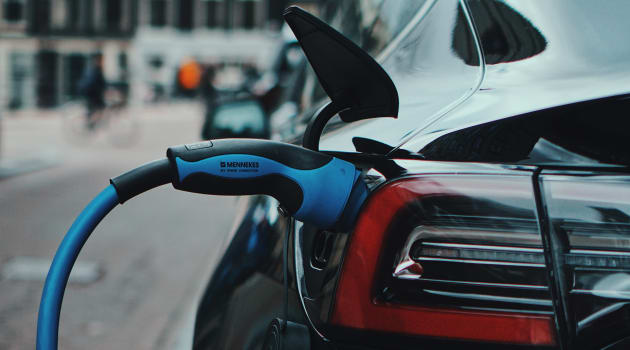Rapper Yoon Byung-ho's bust highlights growing prison drug use problem
Rapper Yoon Byung-ho warns about the dangers of fentanyl abuse on KBS in December 2021. [SCREEN CAPTURE] Rapper Yoon Byung-ho, 24, known for his appearance on the 2018 hip-hop audition program "High School Rapper 2," illicitly used psychoactive substances while detained during his trial for drug-related offenses. This incident has reignited public concerns over the management of pharmaceuticals within correctional facilities. Despite correctional authorities' efforts to monitor and control the smuggling and use of narcotics and psychoactive drugs, there are allegations that inmates continue to distribute and consume these substances clandestinely. Related ArticleKorean police, Interpol seize $1B in drugs, nab 29 offenders in Golden Triangle operationSeoul to crack down on clubs, entertainment facilities as war on drugs escalates Luxury hotels, fast cars and illegal drugs: Elite university students busted for hard-partying social club According to the Suwon District Court, Yoon received an eight-month prison sentence, suspended for two years, for violating the Narcotics Control Act on Oct. 27. Yoon was charged for using diazepam, lorazepam and zolpidem while in custody at the Incheon Detention Center in August 2022. At that time, Yoon was already on trial for using drugs like marijuana, fentanyl and methamphetamine between January 2018 and July 2022. According to the Ministry of Justice, the number of detected cases of illegal drug use in correctional facilities, such as in Yoon's case, increased from zero in 2020 to seven in 2022. While there was a slight decrease to four cases last year, the number has risen again, with six cases identified as of September this year. A police officer checks drugs seized from a suspected crime organization at a police station in Seoul on May 29, 2024. Image is unrelated to the article.[YONHAP] There are also testimonies suggesting that drug use among inmates, including those not charged with drug-related crimes, is far more common than the detected cases indicate. “Even inmates undergoing rehabilitation education couldn’t resist secretly taking drugs,” said a recovery counselor, surnamed Han, who has worked as a counselor since his own release from prison for drugs in 2017. “It’s safe to assume that drugs still circulate in the cells. Recently, a female drug offender was beaten in her cell by fellow inmates for refusing to use drugs.” “Most reported cases come from fellow cellmates who inform correctional officers.” Drugs are distributed within correctional facilities primarily through two methods: smuggling or repurposing prescribed psychoactive medications. Smuggling is often carried out through mail or parcels. While all mail and packages for drug offenders are opened and inspected by correctional officers, it is virtually impossible to check all correspondence received by non-drug offenders. “Thousands of letters and parcels arrive daily, and it’s practically impossible to inspect everything,” said a correctional officer, who asked to remain anonymous. “When letters or packages are delivered already opened, inmates frequently file complaints of human rights violations to the National Human Rights Commission or the Ministry of Justice.” “Letters exchanged with lawyers cannot be inspected, as it would infringe upon their right to defense.” Cocaine and other drugs on a black background. Image is not related to the article. [GETTY IMAGES] Park Beom-hee, 42, who was released in September last year, described a common method of smuggling drugs. “Drug offenders are prohibited from bringing in books from outside, but they would ask non-drug offenders they befriended during the daily 30-minute exercise sessions to help,” said Park. “These non-drug offenders would get books from acquaintances outside, who would then hide drugs inside thick book covers. The books would then be smuggled into the facility.” There are also reports of inmates hiding legally prescribed psychoactive drugs for unauthorized use or trading them with other inmates. The correctional authorities mostly allow psychoactive medications for treating pain, insomnia or depression, prescribed through external hospitals with the warden’s approval. Correctional officers then administer the medication in the correct dosage and monitor consumption. However, inmates have devised creative ways to hide the drugs. “Inmates hide zolpidem under their tongues, grind it up, and snort it through the nose, or they swallow the pills and later regurgitate them to save for later use,” said another correctional officer who asked to remain anonymous. “It’s hard to detect the drugs if they are determined to hide them, especially when one officer oversees multiple cell blocks.” Packages of illicit drugs that were found at a hideout of a 38-year-old Chinese drug dealer in Cambodia. Image is unrelated to the article. [NATIONAL INTELLIGENCE SERVICE] Some inmates also misuse non-controlled medications as drugs. “Lyrica capsules, used for back pain, are not classified as psychoactive drugs, so inmates can receive multiple pills at once,” said Park Beom-hee. “They crush these pills into powder and use a pen without a refill as a straw to snort it, getting a high similar to marijuana. This method is well-known among both drug and non-drug offenders.” Experts emphasize the need for a stricter drug management system. “Thorough inspections of incoming items and inmates during transfers, along with regular drug testing and strict penalties for positive results, are necessary to improve the management system,” said Kim Dae-keun, a research fellow at the Korea Institute of Criminology and Justice. Expanding drug rehabilitation and treatment programs, currently focused on convicted inmates, to include pretrial detainees is another way to combat drug crimes in correctional facilities. “Pretrial detainees who are mostly minor drug offenders need incentives to quit drugs,” said Park Young-deok, head rehabilitation center of the Korea Association Against Drug Abuse. “Instead, they are left neglected and end up sharing drug-related information and knowledge in their cells.” “We are working to block drug smuggling into correctional facilities by strengthening inspections with advanced equipment such as X-ray scanners and portable drug detectors,” said a Ministry of Justice official. “A special judicial police team was established last year to respond rigorously to drug-related crimes in correctional facilities.” BY KIM MIN-YOUNG [[email protected]]



















